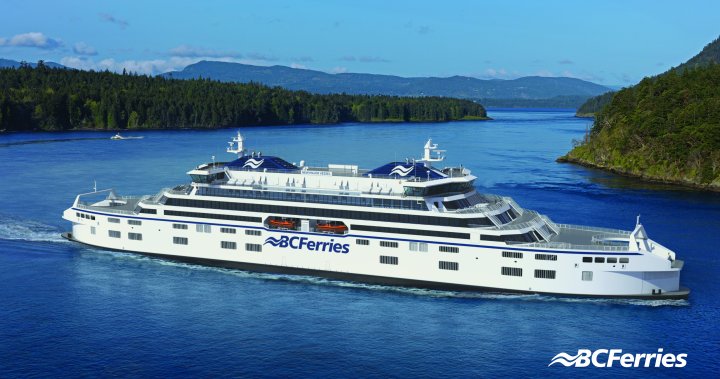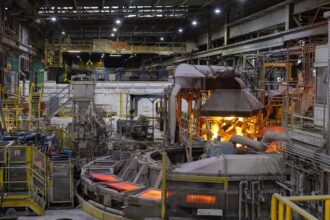In an unexpected turn that has sparked debate across British Columbia’s maritime industry, Seaspan has publicly addressed its decision not to bid on BC Ferries’ controversial shipbuilding contract that was ultimately awarded to a Chinese shipyard. The explanation comes amid growing concerns about domestic shipbuilding capacity and the economic implications of sending such significant contracts overseas.
Jonathan Whitworth, CEO of Seaspan Marine Transportation, revealed that his company made a strategic decision to focus on federal government contracts rather than pursuing the BC Ferries project. “Our Vancouver Shipyards is currently at maximum capacity with the non-combat package under the National Shipbuilding Strategy,” Whitworth stated during a press conference at the company’s North Vancouver facility.
The contract in question, valued at approximately $95 million, involves the construction of four new hybrid-electric vessels intended to modernize BC Ferries’ aging fleet. BC Ferries’ decision to award the contract to China Merchants Industry Holdings has drawn criticism from labor unions and industry stakeholders concerned about lost opportunities for local employment and economic development.
Mark Collins, President and CEO of BC Ferries, defended the decision, citing significant cost differences. “The domestic bids we received were substantially higher—in some cases more than double the international offerings,” Collins explained. “As stewards of public funds, we had to consider the financial implications for taxpayers and ferry users.”
The situation highlights a broader tension in Canada’s shipbuilding industry, where domestic yards struggle to compete with international shipbuilders on price while maintaining the specialized workforce required for complex projects. Industry analysts note that Canadian shipyards face higher labor costs and regulatory requirements that can make competitive bidding difficult, particularly for projects without explicit domestic content requirements.
British Columbia’s Minister of Transportation, Rob Fleming, expressed disappointment but acknowledged the reality of the situation. “While we would prefer to see these vessels built locally, BC Ferries operates as an independent entity with its own procurement processes,” Fleming noted. “The provincial government remains committed to supporting our domestic maritime industry through other initiatives.”
Labor representatives have voiced strong opposition to the overseas contract. “This represents a missed opportunity to create hundreds of skilled jobs right here in British Columbia,” said Robert Ashton, President of the International Longshore and Warehouse Union Canada. “We’re effectively exporting not just the construction work but all the associated economic benefits.”
The controversy occurs against the backdrop of Canada’s National Shipbuilding Strategy, a long-term government initiative designed to develop domestic shipbuilding capabilities. Seaspan’s Vancouver Shipyards is currently working on several major federal projects under this program, including the construction of naval supply ships and research vessels.
Maritime industry experts point out that this situation reflects a global challenge. “Many countries struggle with the balance between supporting domestic industries and managing costs,” explains Dr. Mary Thompson, a maritime economics professor at the University of British Columbia. “Without specific policy frameworks that recognize the strategic importance of domestic shipbuilding capacity, price will often be the determining factor.”
For BC Ferries passengers and the British Columbia economy, the implications extend beyond the construction phase. Questions remain about maintenance, warranty work, and long-term operational support for vessels built overseas. The ferry operator insists that comprehensive service agreements and quality control measures will ensure the vessels meet all Canadian safety and operational standards.
As the debate continues, the situation raises important questions about Canada’s industrial policy and strategic priorities. In an increasingly globalized economy, how should we balance immediate cost considerations against longer-term economic development goals? And perhaps more fundamentally, what value do we place on maintaining domestic capabilities in sectors deemed strategically important to our national infrastructure?

























